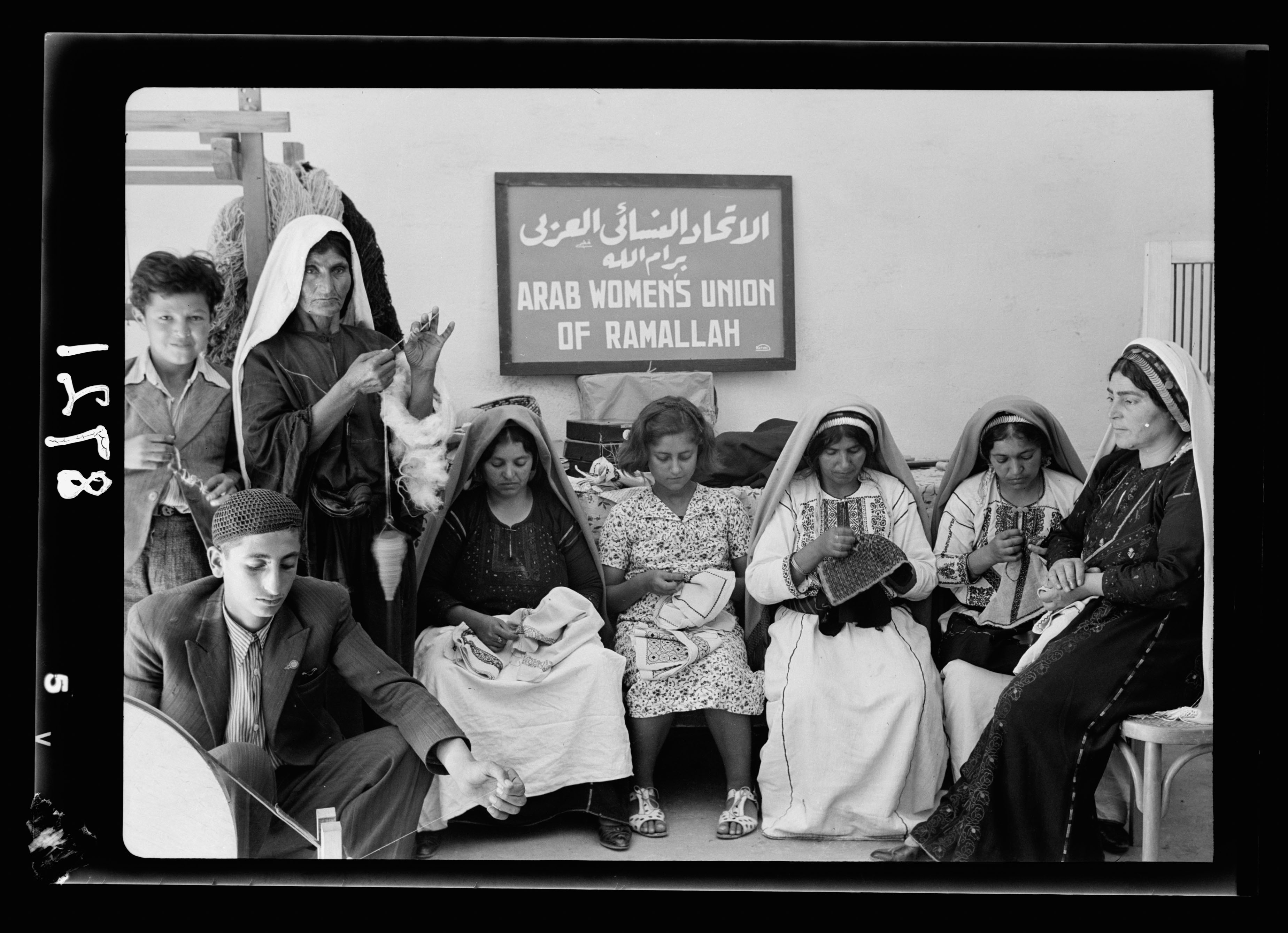Feature photo credits: Photo by Dan Meyers on Unsplash
Editor’s note: Your mental health is important; do not ignore it. We urge you to seek help or talk to someone. If you are suffering from mental health issues or are having suicidal thoughts, please seek assistance immediately and reach out to the national suicide hotline in your country of residence. Know that you are not alone, no matter where you are in the world. Below are some of the numbers of such hotlines around the world:
-
- Lebanon, Embrace Lifeline, Ph: 1564
- The United Arab Emirates (UAE), National Committee for the Promotion of Mental Health, Ph: 920 033 360
- The United States of America, National Suicide Prevention Lifeline, Ph: 1 800 273 8255
- Canada, The Canada Suicide Prevention service, Ph: 1 833 456 4566
- Australia, Lifeline, Ph: 131 144 or Suicide Call Back Service Ph: 1300 659 467
- France, Suicide Écoute, Ph: 01 45 39 40 00
During my time as a critical care and burns physician, I noticed the increasing number of individuals admitted to hospital for drug overdoses. I also felt their suffering, especially among the youth and strongly believed (and still believe) in our ability to give hope. In 2013, all of this led to the setting up of the Lebanese Association of Medical Services for Addiction (LAMSA) (“a touch of love and affection” in Arabic).
Credits: Lamsa [Lamsa Lebanon]. (2021, April 15). So what’s LAMSA really about? [Video]. YouTube.
Through its volunteer ambassadors from different medical schools both in Lebanon and abroad, LAMSA aims to promote youth mental health and wellbeing and raise awareness about mental illness and the consequences of using drugs. These aims are achieved by conducting awareness sessions in schools, universities, clubs, scout groups, as well as regular webinars. In addition, a LAMSA chapter in Montreal was recently established due to the initiative of three young Lebanese-Canadian students at McGill University.
The stories I would like to share with you clearly illustrate the reason behind LAMSA’s tireless efforts and demonstrate the importance for a physician to think beyond the symptoms and diagnosis and listen with their heart and then act accordingly.
In an era of unprecedented progress and development in science, research, and technology, clinicians sometimes forget that they have much to learn from patients. By embracing humility and listening with one’s heart to the story of each patient as well as their concerns and needs, healthcare professionals can then better deliver individualized patient-centered care. As Theodore Roosevelt once said, “Nobody cares how much you know until they know how much you care.”
Being a woman, a mother, and a doctor, has given me the opportunity to learn a lot from patients’ experiences. I never took the importance of the doctor-patient relationship for granted, but it took me time to truly grasp it. For this reason, I began to advocate for youth mental health and wellbeing.
Below are a couple of stories from my experience which will give you a fair idea of the gravity of the situation at different moments within the mental illness journey.

Credits: Photo by Sasha Freemind on Unsplash
Walid’s Mom, Aida
“Hello, I’m Aida. I got your phone number from a common friend and would like to ask for your advice on my son Walid. He’s a heavy smoker, abuses alcohol, and gets depressed. He also refuses to see a doctor. What can I do to help him?”
Such distressing calls started becoming more frequent and with each call I would feel more and more helpless. After a moment of anxiety and despair, I pulled myself together, then, all of a sudden, a wave of empathy and compassion hit me along with an overwhelming feeling of pain and suffering.
“He was handsome, athletic, and much loved by his friends; now, I no longer recognize him.” Aida’s words touched me very deeply and really resonated with me. I felt as if she was talking to me as a woman, a mother, a friend, and a sister as much as a healthcare professional. Truth be told, she wasn’t seeking a mere medical consultation as she had already consulted many psychiatrists and psychologists and was clearly fed up with the monotonous prescriptions and therapy recommendations. Reality is actually much more complicated than our prescriptions alone. A deep desire to help her as best I could took hold of me.
Mona
Aida’s call takes me back to the mid-1970s when I was a child. At that time, Mona’s son, our neighbor, had a mental illness but I didn’t initially recognize that. What I did notice, however, was that Mona seldom left her home, while her husband led a normal life. I once overheard my mom talking to Mona on the phone, “Why don’t you go out?”, asked my mom, who was frustrated and ironically said to herself before hanging up, “She makes me sick! She’s always tired.”
What was Mona’s problem? She dedicated all her life to look after her son. Thus, she shut herself off from the outside world, burned out, and became mentally and physically ill. She found herself alone without supportive friendships nor emotional assistance of any kind.
Mona sadly died in the middle of the 1990s after suffering for two long decades from a range of non-communicable diseases (“diseases one cannot catch from another person”) resulting from stress, an unhealthy diet, and a sedentary lifestyle. On the day of her funeral I discovered that her son was in fact schizophrenic. He had been diagnosed with a severe case in his late 20s but didn’t respond to medications. Mona’s only desire was to live as long as possible to take care of her son. She would often repeat “Who will take care of him once I’m gone?”. This touching story, among many others, reminds us that mental illness is a lifetime journey.
My Personal Story
I myself have experienced and had to cope with mental health issues before. Having worked for 18 consecutive years in an ICU and burns center, I burned out so I left. At first, I didn’t realize it was burnout even though I’d been to medical school. It just never crossed my mind. Part of the problem is that our culture sees medical doctors as invincible; they can never be affected by fatigue, emotions, or mental distress. I thus found myself somewhere between Aida and Mona.
Although I had been suffering myself, I didn’t stop listening to family members who shared their pain and despair. I heard some of them crying and expressing their sorrow. Their sole purpose in speaking to me was to alleviate the suffering of their beloved ones and convince them to seek professional help.
The suffering of others touches me deeply as a professional, woman, and mother. It has also made me aware that the whole family carries the pain. When a son or daughter is diagnosed with an illness, a mother often feels guilty as if she’s responsible for her child’s pain and in most cases ignores her own health and well-being. This can lead to burnout or getting close to it. Once a mother, inspired by the story of a young man sharing his experience with psychosis and how important the support of his father was, called me to ask how she could get in touch with this family in order to get some advice on how to convince her son to also seek professional help.
Credits: Lamsa [Lamsa Lebanon]. (2021, March 4). Psychosis | A Testimonial. [Video]. YouTube.
Loving fathers, siblings, and other family members could also become mentally drained, traumatized, and afraid of stigmatization. A young resilient sister wrote “As tough as this was, I would be lying if I said that what we went through did not shape my personality.” She turned the vulnerability of her brother into power to move forward.
What has come out of my experiences, is in essence the very soul of LAMSA which is to support and empower the whole family, with humanity, compassion, and love, while trying to end the stigma around mental illnesses. In his piece “Love as a Social Determinant of Health”, Dr Scott Wright, from John Hopkins Medicine, wrote that “Love is unquestionably a social determinant of health!”
From a professional point of view, caregivers not only need to get those they look after to start and stick to necessary treatment, but they also need to be guided in the choices of mental health services available. Naturally, they search for assistance within the community they belong to, their comfort zone, seeking the support of those who have also experienced mental health conditions. From a humanitarian point of view, the voices of families and patients should not be ignored as listening to them can point out real gaps.
Important Issues in Youth Mental Health
Based on my experience in youth mental health, I’ve come up with a list of important issues which need to be addressed. They include:
- Recognizing symptoms of mental illnesses early, either in oneself or in others. The sooner treatment begins, the faster the recovery.
- Convincing someone to visit a mental health professional when needed. Engagement and adherence to long-term treatment is also a concern.
- Supporting the whole family in their awareness of available treatments. In the absence of a referral system unlike some countries, helping them navigate available mental health resources to find appropriate and personalized care. Finally, guiding them as they support both the one suffering from a mental health condition and each other.
- Empowering caregivers to take care of their own mental and physical health, stay active, productive, and socially connected.
Left unaddressed, these issues will delay the access and adherence to treatment, even if services are widely available and free of charge. Many will be left untreated thus increasing the burden of mental illnesses.
Faith in Our Abilities to Act and Help.
So then, what can be and is being done to address the mental health challenges and issues faced by Lebanese families?

Credits: Akel, L. A. & Lamsa. (2021, March 31). Why Mental Health Must Be Taught to People at a Young Age? Lamsa Lebanon.
- Online Advocacy, Awareness Campaigns and Mental Health Literacy
The COVID-19 pandemic has accelerated the transition to digital health, which is no doubt the future of healthcare. In addition to the pandemic, the Beirut blast and the socio-economic crisis have, and continue, to negatively impact the emotional well-being and mental health of Lebanese youth. In the United States of America alone, half of all chronic mental illnesses begin by age 14, and three quarters of them by age 21, so what could be better than online mental health education delivered by the youth to the youth? The goal of awareness and education is to therefore empower youth with evidence-based knowledge so that they seek help if and when needed while ending the stigma around mental illnesses by providing opportunities to share stories and inspire others.
Since December 2019, LAMSA’s ambassadors have published 30 articles and delivered 27 Webinars (#WednesdayWebinars) attended by around 550 young adults. However, we firmly believe that more work needs to be done to raise a healthy generation, and this cannot happen without collaborating with organizations, youth clubs, schools, etc.
2. Online One-To-One Peer Support: A Necessary Informal1 Community Service in Lebanon
I’m a firm believer in the power of peer supporters, the experts by experience. According to Peer Support Canada, “Peer support is emotional and practical support between two people who share a common experience, such as mental health challenge or illness. A Peer Supporter has lived through that similar experience, and is trained to support others.” It can be delivered either to people with mental health challenges or to their families and/or caregivers. One of the advantages of online peer-to-peer support over face-to-face, is that it can be delivered anonymously. Furthermore, such support is helpful for both the individual struggling with mental health issues and the peer supporter. The benefits include:
- ngagement with mental health professionals and long-term adherence to treatment.
- Emotional and psychological well-being and self-esteem improvement.
- Empowerment, skills development, social inclusion, and work capacity enhancement (“One-to-one peer support by and for people with lived experience”, WHO QualityRights guidance module).
Ultimately, if we have faith in our abilities to support each other, we then have the confidence in the goodwill of thousands of men and women to help us accomplish the mission that we have set for LAMSA. The recent emerging inaccessibility to psychiatric medications is yet another example of how the crisis in Lebanon is affecting those with mental illnesses. Now is the time to work together and listen to the desperate cries for help in order to address all these issues and contribute to better mental health for ourselves, our families and friends, and our community.
1 Informal community mental health services are services provided in the community but are not part of the formal health system; services could be provided by peers, network, associations, teachers, religious, etc.
Dr. Zeina Moukarzel was born in Lebanon and completed her medical degree at the Lebanese University. She specialized in anesthesia and pediatric resuscitation at the Necker Enfants Malades Hospital, Paris, affiliated with the University of Paris V. She also has a double Master’s in Health and Hospital Management from the ESA Business School, Beirut, Lebanon, and from the University of Paris VII, a Master’s in Public Health as well as a diploma in addiction medicine from Saint Joseph University, Beirut, Lebanon. Finally, she completed training in mindfulness-based stress reduction (MBSR) at McGill University in Montreal, Canada.
From 1995 to 2013, Dr. Moukarzel practiced as an anesthesiologist and critical care physician in the Intensive Care Unit (ICU)/Burns Center at the Lebanese Hospital Geitaoui - UMC. From 2005 to 2011 she was the Head of the ICU/Burns Center at the same hospital. In 2011 she started working as a general practitioner, smoking cessation specialist, and addictions counselor. In 2013, Dr. Moukarzel founded LAMSA (Lebanese Association of Medical Services for Addiction), an NGO which is still active among the youth in Lebanon. She is married and has three children.
-
This author does not have any more posts.












